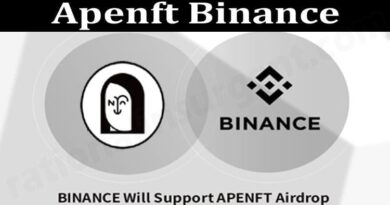Navigating Blockchain Regulations and Legal Challenges
An article is a written composition on a particular topic that forms its own independent piece within a publication. As well as offering general understanding of said topic, articles also highlight its main points.
At a state level, governments have taken various approaches to regulating blockchain and cryptocurrency. Some have exempted cryptocurrencies from securities and money transmission laws while others take an open approach toward technological advancement.
You can also check out other tips about blockchain or banking with us!

State Regulations
State regulations often regulate the implementation and usage of blockchain solutions. This includes data localisation laws, national security regulation and privacy guidelines that vary based on jurisdiction or industry.
However, most states have taken an open-minded approach toward cryptocurrency and blockchain technology, and many have begun exploring its innovative potential – from using it for government record keeping purposes to exempting it from state property taxes.
An integral feature of blockchain systems is their immutable data storage mechanism, making any changes difficult or impossible – which may conflict with privacy regulations when dealing with personal information like shipping details or individual identities involved in transactions.
Due to this reason, it’s vital that before implementing any blockchain solution it is carefully reviewed from a regulatory perspective. This checklist serves as a useful starting point, though specific legal advice will likely be necessary in each instance.
Federal Regulations
Due to blockchains’ global nature and jurisdictional boundaries, identifying which laws apply and when can be difficult. Therefore, legal or regulatory advice should always be sought individually for any particular case.
Federal agencies play an essential role in the blockchain adoption process, from providing guidance and setting rules that address unique challenges to creating policies to prevent money-laundering using blockchains to establishing digital asset standards and more.
Furthermore, the federal government should consider supporting blockchain projects by creating a dedicated procurement unit at GSA that facilitates agency procurement of blockchain services. This would enable faster adoption while mitigating risk based concerns and serving as a model for other public sector organizations to follow; furthermore this administrative process must remain technology neutral so as to facilitate innovators bringing their new products or services to market through complex regulatory environments.
International Regulations
Blockchain networks operate across multiple jurisdictions, which presents legal and regulatory challenges due to certain laws that have extraterritorial application (apply to activities outside a given territory).
Data localisation laws may apply and immutability of blockchain data could conflict with these requirements. Furthermore, using digital assets as trackers could affect international trade and investment decisions and be subject to market manipulation/abuse laws.
Additionally, competitors’ participation in a consortium network may raise antitrust concerns. Moving forward, global standards-setting bodies will need to establish policies and regulations which reflect blockchain goals and values.
Private Sector Regulation
Legal considerations surrounding blockchain adoption present several legal concerns that must be taken into account, including regulatory compliance (e.g. anti-money laundering/countering the financing of terrorism, “know your customer” requirements and cybersecurity); potential liabilities from product design/failures including smart contract errors; as well as how to address data privacy, security, and confidentiality concerns.
Another challenge lies in how to resolve disputes, including those over who owns a blockchain network’s intellectual property (IP). Furthermore, any time participants in a permissioned blockchain consortium collaborate with competitors they raise potential antitrust concerns that need to be managed legally.
Government should focus on encouraging blockchain adoption, while providing an environment conducive to experimentation. They should establish international harmonization of regulations, promote interoperability of data sets and use targeted regulatory enforcement. Finally, governments should support research and development of innovative applications of blockchain technology – this may involve encouraging participation by both public and private actors from sectors that could benefit from its application.




